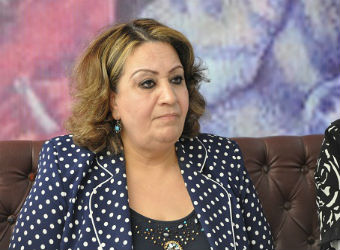I never thought I d consider the chairman of the Brixton Mosque a close friend.
A devout Muslim, Abdul Haqq Baker lives in Britain and Saudi Arabia with his wife, who chooses to wear a burqa, a garment that fully covers a woman s body, head and face. I am a proud American who chooses to wear tall leather boots and can t remember the last time I attended a religious service.
Separately, we have each fought Al-Qaeda extremists. Together, we both recognize that terrorists cannot be stopped until we move beyond stereotypes and ignorance, embrace our shared humanity and take away the one thing Al-Qaeda and its affiliates exploit – passive support for their violent tactics.
On the European Union s Victims of Terrorism Day last month, the EU called on European society and institutions to reflect on how the terrorist threat can be addressed and prevented, and how the security of all citizens can be better protected.
Like Abdul Haqq and others in the European Muslim community, I think about addressing terrorism quite frequently. After my mother was killed by Al-Qaeda terrorists on September 11, 2001, I spent years advocating for counter-terrorism reforms with fellow 9/11 family members in the United States. Recently, I began work on a project that has introduced me to Al-Qaeda victims around the globe.
The goal is to humanize Al-Qaeda victims and their families, and give them a voice when all the world hears are those of Osama bin Laden and his cronies.
These voices attest to the stark realities of terrorism, to the pain, suffering and complete lack of glamour. They revoke any sense of nobility or martyrdom a potential recruit could envision in terrorist acts that inflict tragedy and chaos on victims across the globe.
Even after years of working with terrorism victims, I still experience the power of these voices.
When I first met last year with victims and bereaved families of the July 7, 2005 bus and subway bombings in London, my family had just received word that my mother s foot had been identified in the pile of rubble at the World Trade Center, more than five years after the attack.
I found unexpected comfort and understanding in the stories of perfect strangers – an English woman who received the remains of her son, murdered on the Piccadilly line, in bits and pieces, and a 7/7 survivor whose feet were retrieved from the wreckage where her legs were severed.
I found more comfort with them, in fact, than I do with most of my American friends and neighbors who have never had to confront the terrible reality of deciding whether or not to hold a funeral each time a body part is found.
There is a sad unity among victims of terror, even when our political and religious views differ. That unity begets power.
Working together, the victims of Al-Qaeda can chip away at the passive support in neighborhoods and communities where the terrorists message of hate and destruction may persuade those without love and hope that violence is the answer.
Under the leadership and support of the chairman of the Brixton Mosque, Abdul Haqq Baker, this power is being harnessed.
Victims and family members of the 7/7 and 9/11 attacks have and will continue to speak at the Brixton Mosque with school children, mothers, fathers and community members about the realities of being a terrorism victim.
The hope is that such discussions will shed light on each group s experiences, building understanding and overcoming stereotypes.
If people in the EU and around the globe are serious about stopping the next Al-Qaeda attack, we need to look beyond governmental actions and policies and think about what we as global citizens can do.
Let s reach out to Al-Qaeda victims in the Muslim world as well, where there are, sadly, altogether too many of them.
We must ensure that the voices heard there are not just those that may be sympathetic or indifferent to violence and hatred but rather those that have experienced terrorism s suffering firsthand. Those voices can undermine Al-Qaeda s message better than any government edict or international proclamation.
Defeating Al-Qaeda and its affiliates requires more than missiles and mandates. It takes unexpected friendships and alliances, much like mine with Abdul Haqq. Today, let s honor them, and pledge to grow even more.
Carie Lemack is the co-founder of Families of September 11. It can be accessed at www.commongroundnews.org.


